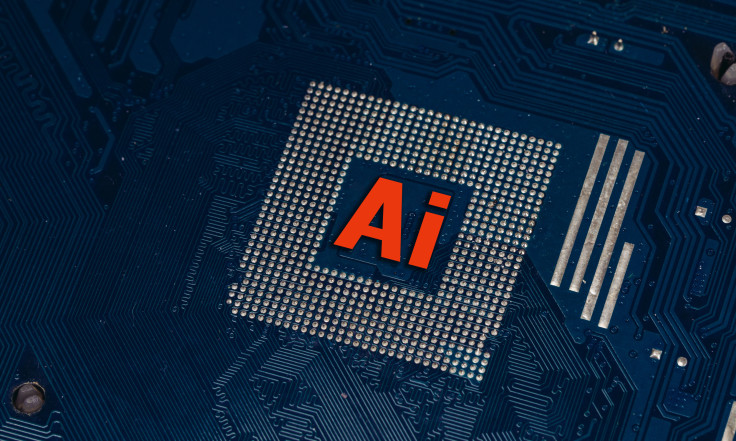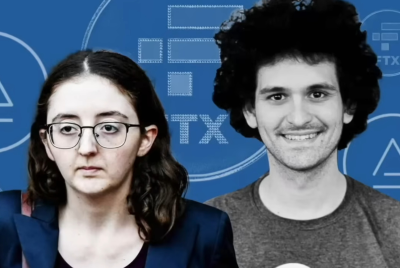From Six Figures to Survival: Ex-Microsoft Worker Facing Homelessness After Brutal Nine-Month Job Hunt
After losing his six-figure role at Microsoft, Mody Khan is now battling joblessness and looming homelessness

Editor's Note: This article has been updated to remove information that was incorrectly attributed to the subject of the article and to Business Insider.
The irony isn't lost on Mody Khan. For five years, he helped build the very cloud infrastructure that Microsoft now uses to power its artificial intelligence revolution. Today, that same AI-driven transformation has left him staring at foreclosure notices and counting down his final weeks of financial survival.
Khan's story begins like thousands of others in America's technology corridors: an immigrant's success, steady career progression, and suburban home ownership. But nine months after Microsoft showed him the door, his tale has become something darker: a middle-class professional's descent toward homelessness in a nation that promises economic mobility to those who work hard and play by the rules.
The 49-year-old cloud solutions architect sits in his Texas home office, the same space where he once managed millions of dollars in corporate computing infrastructure, and scrolls through another day's worth of rejection emails. His savings account shows £7,200. His mortgage forbearance expires in eight weeks. His wife asks fewer questions about job prospects these days.
When Performance Reviews Become Weapons
Khan's final months at Microsoft weren't just about technology. They were about power, perception, and the grinding machinery of corporate performance management that can transform a competent engineer into unemployable deadweight with startling efficiency.
Multiple managers flagged concerns about his work throughout 2024. Khan describes a mounting pressure campaign where feedback felt less like coaching and more like case-building.
When December's layoff notification arrived, Khan felt almost relieved. The uncertainty was over. The performance improvement plans, the sideways glances in video calls, the careful documentation of every misstep—it could finally end.
What he didn't anticipate was how the performance narrative would follow him into unemployment, becoming a scarlet letter in an industry where reputation travels faster than résumés.
The Mathematics of Middle-Class Collapse
Khan's financial unravelling follows a predictable trajectory that millions of Americans understand but rarely discuss. Six-figure salary plus suburban lifestyle equals approximately four months of runway when the income stops, assuming no major emergencies, no unexpected expenses, no deviation from careful budgeting.
Month one: Optimism. The savings account looks healthy. Job applications flow confidently. This is temporary.
Month three: Concern. The savings account shrinks faster than expected. COBRA health insurance costs more than anticipated. Property taxes don't pause for unemployment.
Month six: Panic. Credit card minimums become negotiable. Conversations with mortgage lenders grow tenser. Pride prevents conversations with family about money.
Month nine: Desperation. The house, that symbol of American achievement, transforms from sanctuary to liability. Everything becomes transactional. Keep the car or make the mortgage payment. Buy groceries or pay utilities.
Khan has reached month nine.
The Paradox of Plenty in Silicon Valley
Microsoft has reportedly announced a reduction of its 15,000-person workforce on the same day it reported quarterly profits exceeding that of most small nations' gross domestic product. CEO Satya Nadella called this the 'enigma of success'—unprecedented financial performance accompanied by mass layoffs.
The numbers tell a story of mathematical brutality. Microsoft saved £400 million by automating call centre operations. Khan's annual salary: £120,000. Microsoft's quarterly profit: £20.8 billion. The math suggests Microsoft could employ Khan for 173,000 years using one quarter's profit margins.
But the modern world doesn't operate on such arithmetic. It operates on optimisation, efficiency, and the relentless pursuit of margin expansion. Khan's skills, valuable yesterday, became redundant the moment an AI model learned to write cloud infrastructure code.
For Khan, the layoff was more than just a career setback. It was the beginning of a downward spiral. 'I had savings, and I've depleted almost all of it,' he told Business Insider. 'I'm in a very tight spot.'
'I've been constantly applying, and I've had interviews, but I've been turned down everywhere,' Khan said. 'It feels like recruiters are looking for Superman.'
Industry analysts estimate that 30% of Microsoft's code now originates from artificial intelligence systems. Not assisted by AI, written by AI. The distinction matters because it represents the difference between human augmentation and human replacement.
The Invisible Barriers of Age and Origin
After immigrating to the United States from Pakistan in 2007, Mody Khan faced a tough start during the 2008 recession. But over time, he built a career in tech, eventually joining Microsoft in July 2019 as a contract support engineer. By May 2020, he was hired full-time, and in December 2021, he was promoted to Cloud Solution Architect, a remote role he held until his termination in December 2024.
Despite his extensive experience and credentials, Khan has struggled to secure a new role, having applied to more than 1,000 positions with limited success.
Khan's job search reveals the subtle prejudices that permeate Silicon Valley's supposedly meritocratic hiring processes. At 49, he occupies that professional no-man's land between promising newcomer and wise veteran. Too experienced for junior roles, too expensive for senior ones, too old for startup culture, too foreign for companies prioritising 'cultural fit.'
His background adds another layer of complexity. Khan suspects, though cannot prove, that regional tensions in South Asia influence hiring decisions. It's the kind of bias that never appears in rejection letters but lingers in hiring patterns.
Age discrimination in technology remains pervasive despite legal prohibitions. Companies have learned sophisticated methods of screening out older workers without explicitly mentioning age. Job postings seek 'digital natives' and 'high-energy contributors.' Interview processes emphasise 'culture fit' and 'growth mindset'—code phrases that can legally exclude experienced professionals.
Khan completed an AI certification program at the University of Texas, hoping additional credentials might offset perceived deficits. The certificate sits beside his computer science degree and five years of Microsoft performance reviews that once praised his technical expertise.
He was told he could apply for other roles at Microsoft and submitted around 30 internal applications, but none resulted in an offer.
Financially, the impact has been devastating. Khan sold some of his Microsoft stock but now has only about $10,000 in 'survival money' left—enough to last two months. If that runs out, he'll have to dip into his remaining investments or 401(k).
Since leaving Microsoft, Khan has landed interviews, but none have led to offers. 'I've had so many good interviews where I'm ready for them to say, 'Mody, let's rock 'n' roll'—and then they don't move forward,' he said. 'Recruiters contact me, take my résumé, and they ghost me.'
Khan's experience is not unique. The tech industry, once a haven of job security and rapid growth, has seen a dramatic shift in hiring practices.
According to data from Layoffs.fyi, more than 80,000 tech workers have been laid off globally in 2025 alone. Companies like Google, Amazon, Meta, and Intel have followed Microsoft's lead in reducing headcount, particularly among middle management and individual contributor roles.
The Ripple Effects of Corporate Efficiency
Khan's unemployment doesn't exist in isolation. The couple's credit score has plummeted from the high 600s to the low 500s, transforming them from creditworthy borrowers into financial pariahs. Future employment may become more difficult as employers increasingly screen candidates' financial histories.
Their home, purchased during Microsoft's hiring boom, now represents more liability than asset. Real estate markets in technology corridors have softened as remote work reduces the demand for location premiums. Selling might not cover outstanding mortgage balances.
The Broader Impact of AI and Restructuring

Microsoft's pivot toward AI has been a key driver of its internal restructuring. Employees have reported a significant cultural shift, with performance metrics and throughput now taking precedence over holistic career development.
One former employee described the transformation: 'The company I started at vs the one I ended with feels like two completely different entities.'
This shift has left many workers feeling disillusioned and disconnected. The emphasis on automation and efficiency has come at the cost of human-centred leadership and long-term career growth. For those like Khan, who built their careers on collaboration and technical expertise, the new landscape feels alien and unforgiving.
Finding Dignity in Desperation
Despite his circumstances, Khan maintains the quiet professionalism that characterised his corporate career. He answers phone calls promptly, responds to emails quickly, and treats each interview opportunity as potentially life-changing. The discipline that made him successful at Microsoft now sustains him through unemployment's grinding humiliation.
His story resonates online because it represents fears that extend far beyond technology workers. If a cloud architect with advanced degrees and years of corporate experience can face homelessness, who is truly secure?
Khan's quiet dignity in the face of systemic indifference has become inadvertently symbolic. He doesn't seek sympathy, only opportunity. He doesn't blame technology, only timing. He doesn't question capitalism, only its casualties.
As his savings account approaches zero and foreclosure proceedings begin, Khan continues the daily ritual of job applications, phone screens, and polite rejections. Tomorrow he'll wake up, walk fifteen steps to his home office, and continue the search.
The cloud infrastructure he helped build continues to run, processing millions of transactions, enabling global commerce, and powering the AI systems that replaced him.
The machine works perfectly. It just doesn't need him anymore.
© Copyright IBTimes 2025. All rights reserved.





















